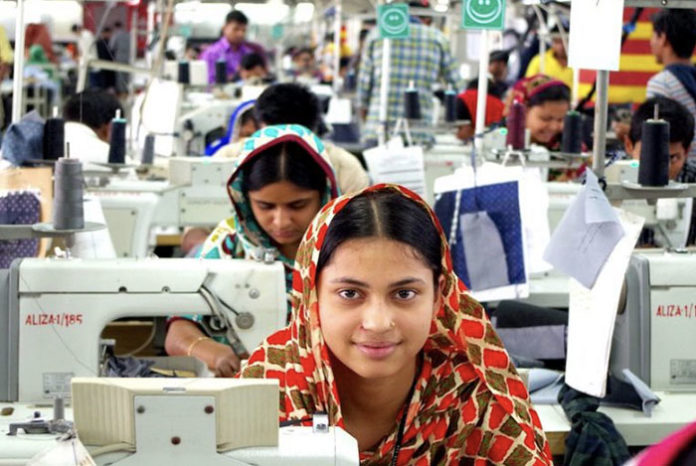
The World Health Organization estimates that one out of three people does not have access to clean water. The fast fashion industry contributes to this problem. The United Nations Environmental Protection Agency (UNEP) found that “the fashion industry uses 93 billion cubic meters” of water yearly, “enough water for five million people.” Aside from its consumption of natural resources, the fast fashion industry is also responsible for labor violations around the world, such as poor working conditions, low wages, forced and child labor. Addressing fast fashion by shifting to sustainable fashion will aid the global community.
A Look Inside the Industry
When Rana Plaza collapsed in Bangladesh in 2013, the world was forced to reckon with the labor violations perpetrated by fast fashion companies. Brands such as Forever 21, H&M, and Zara outsource their production to fast fashion colonies — communities with lax environmental standards and labor codes. Under these conditions, products can be produced cheaply and quickly for Western consumers. Places such as India, Cambodia and Bangladesh tend to be target sites for these colonies, widening the gap between the developing world and the developed world. Garment workers grow remain poor while Western buyers benefit from cheap textiles.
Cyclical poverty is another result of these fast fashion companies. Families receive pay below the living wage. Further, workers are in the sweatshops for 14-16 hours daily, seven days a week. Families often take their children out of school to work, perpetuating the cycle.
Fast fashion also tends to pollute the regions where facilities are located due to the energy required to produce garments. It also consumes much of the raw materials communities need to survive. Without the tools to break free of this system, populations will continue to suffer under fast-fashion corporations. However, public consciousness and multilateral cooperation can rectify the problem.
The Two-Pronged Approach
The approach needed to address the issues of fast fashion is two-pronged. For Western consumers, it is necessary to cease purchasing fast fashion products to deplete the demand. For corporations, sustainable fashion practices are necessary to implement to see change within the industry. Some sustainable strategies would be paying workers fair wages, ensuring safe working conditions, and ending the pollution of textile factories.
When looking at how Western consumers can participate in sustainability, The Borgen Project spoke to Hope Lockwood (they/them), a sustainability researcher and activist from the United States. Lockwood believes that the current presentation of fashion is the main problem in promoting sustainability in the developing world. They state, “Sustainability is achievable, but the way it’s presented now — a $200 t-shirt made of pure cotton — is not [sustainable]. The face of sustainability has changed from Indigenous communities who have practiced sustainability for their entire history to wealthy, privileged and often white people who market sustainability as some kind of luxury.”
Additionally, Lockwood has noticed how the high price of sustainable goods is often what turns people off from even attempting to live sustainably. Lockwood thinks that some companies still see sustainability as a trend and not a viable way to make money. Lockwood believes sustainable production could become accessible for all if companies shift their perspective.
International Corporate Support
International companies have also begun incorporating sustainability into the fashion industry. One such organization is TenTree. The company plants ten trees for every garment it sells and aims to plant one billion trees by 2030. In addition to addressing its carbon footprint, TenTree is also a certified B corporation. This means the company’s workers are paid competitive living wages and its business practices are transparent.
People Tree is another company taking part in the sustainability movement. The company prioritizes the skills of local artisans in the creation of its products. It aims to hire those with specialized experience in textiles, such as embroidery or weaving, from rural communities. The local artisans receive competitive pay for their labor and have their crafts persevered and celebrated. By doing this, both the community and the company profit.
Patagonia is another notable corporation on the sustainable front. The company’s profits partly go toward global sustainability advocacy. This activist program works to educate on the downfalls of fast fashion and champions the rights of garment workers
All of the “extra” sustainable fashion practices taken by these companies should be the norm. In the coming years, larger fast fashion companies can look to these vendors as examples. With these changes applied en masse, the fashion industry could see strides in progress not only for sustainability but also for human rights.
Intergovernmental Support
Intergovernmental bodies, such as the United Nations, are also instrumental in promoting sustainability in the fashion industry as they can provide an international standard. Currently, the U.N. has no resolutions to eradicate fast fashion; however, it does have smaller committees and bodies addressing the issue.
One such group, the U.N. Alliance for Sustainable Fashion, works to implement sustainability programs around the world in textile plants. Along with implementation, the group works to investigate violations within fast fashion companies. Oftentimes the obstacle companies cite money as the reason they cannot implement sustainable practices. This organization helps make that an invalid excuse. Each year, the fashion industry loses around $500 billion of value due to wasteful business practices, such as clothes being thrown directly into landfills. Fashion industries could save money with increased eco-friendly practices.
The U.N. also participates in Forests for Fashion. This project works to aid fashion companies to incorporate more sustainable practices and raw materials in manufacturing, specifically through trees. In this way, ethical companies will have the means to revitalize communities, the environment, and the fashion industry at large.
Sustainably produced fashion is an attainable goal and it is a necessary one for the global community. The planet and its people will suffer if the problems of fast fashion aren’t addressed. Companies have proved that when a business begins to operate sustainably, its workers benefit from higher wages and have the ability to live more fulfilling lives. The cycle of poverty cannot end while unlivable wages and environmental havoc exist.
Source: www.borgenmagazine.com










